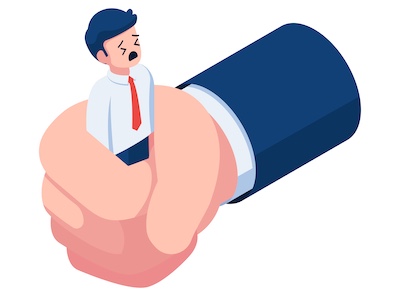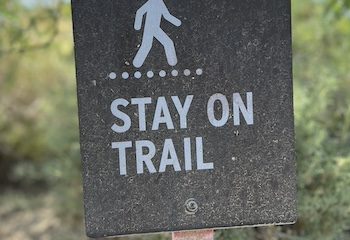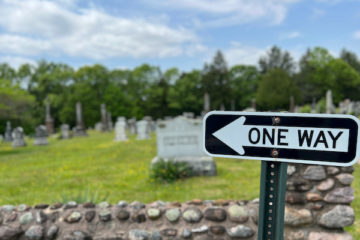Why checks and balances on power matter
Last weekend we took a micro vacation to the Columbia River Gorge, a beautiful stretch just east of “war-ravaged” Portland, Oregon. We wanted to do a particular hike but found the road to it was closed.
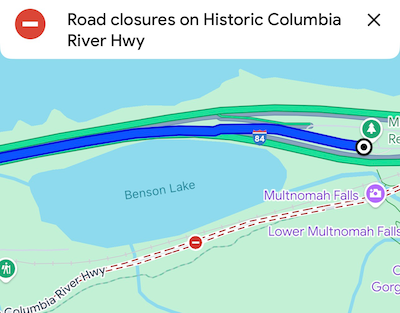
Always a skeptic, I decided to check. Turns out this area is managed by the Department of Agriculture Forestry Service, but when I got to their website to verify the closure, I was startled to see illegal propaganda on the top of the site.
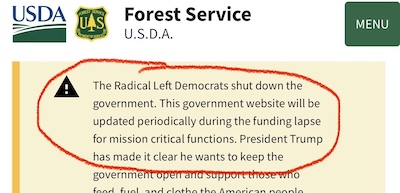
Although we still got to see a lot of gorgeous scenery along the river, I couldn’t help but wonder how many different people had to approve that partisan content before it got posted to an official government website funded by taxpayers.
Some number of people had to evaluate the moral, ethical, and legal aspects of posting that. I’m sure a number of those people were just following orders, which is a valid defense except when “(1) the order is illegal, and (2) the accused actually knew it was illegal or a person of ordinary sense and understanding would, under the circumstances, know the order was illegal.”
Now, of course we’re not talking genocide here. It’s a website. Maybe I’m stirring up a tempest in a teapot.
And, maybe there’s some gray area here in terms of who has culpability and accountability for something like this.
It’s one of the problems with large organizations—accountability gets diluted. We don’t want to punish the low-level functionaries who are just doing what the boss says, and we have a difficult time holding accountable those people who are giving the orders.
Thus, an order to do an illegal thing may travel all the way down the hierarchy, with each pass-through providing more insulation for the person who originally gave the order, and also more weight on the lower-level functionary to follow the order.
The ones at the top count on this. The ones at the bottom are usually victims of it.
So what should happen if the propaganda on the Forestry Service website turns out to be illegal, and the employees who were just following orders should have know it was illegal? (It will, and they should.)
Should those employees have refused to follow the orders they were given by their superiors? They could lose their job for that. In this economy, I have some sympathy.
On the other hand, I also have experience risking my job by refusing to execute an unethical order from my boss in uncertain economic times. Getting fired would be a huge problem as I was the sole earner in our family, and we had a mortgage and two small children. Coming on the heels of the dot-com bubble burst, it was a dodgy time to be risking my job.
I got fired for refusing to do what my boss said. It was wrong, and I do not regret standing up for ethics and doing the right thing.
It felt unfair then to be put in that position, and it still feels unfair 25 years later.
So I have great sympathy for the low-level functionaries who find themselves in that difficult position right now. They may have to choose between breaking the law and getting fired.
Everyone in that position must check their own value system and then accept the consequences of the decision they ultimately make.
It feels unfair because it is unfair.
Leaders in a big, hierarchical system enjoy the benefit of structurally diluted accountability. We give leaders great power, and we should expect a lot from them in return.
We should expect them to bring wisdom, perspective, knowledge, and a strong moral and ethical compass to their decisions. And if we can’t expect that, then we need to create checks and balances to ensure they don’t abuse the power they’ve been trusted with.
Humans are very good at conforming to reward/punishment systems. We will do what we get rewarded for and avoid what we get punished for. The trick is in understanding what rewards and what punishments are being meted out, by whom, and how.
By the way, we had a lovely micro vacation and saw some very interesting things and gorgeous views.

Connect with me
Schedule a consultation session now or drop me a line.
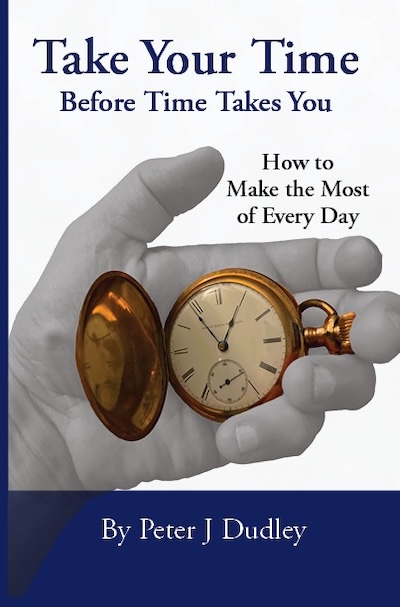
With Take Your Time Before Time Takes You, learn to make the most of every day through thought-provoking exercises and perspective-twisting stories. Get it now in paperback or ebook.
“It changed my life.” – TP, client
“A go-to guide for people who want to improve their lives but don’t know where to start.” – MJ, earlier reviewer

RELIT: How to Rekindle Yourself in the Darkness of Compassion Fatigue gives practical, actionable advice on avoiding and overcoming compassion fatigue and caregiver burnout. My chapter explains how I stay centered and focused so I can give every client my best, every time.
Download my chapter for free: Show up. Try hard. Be nice.
Or just go buy the whole book. It’s worth it.
